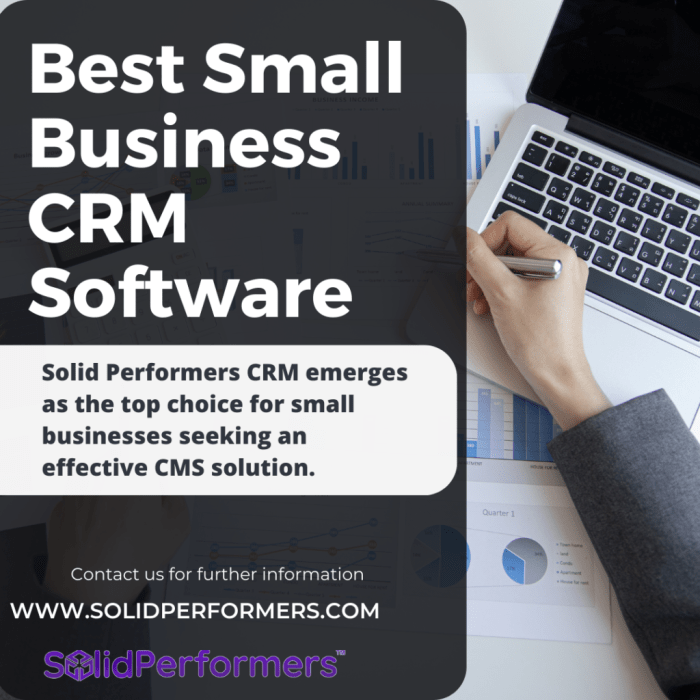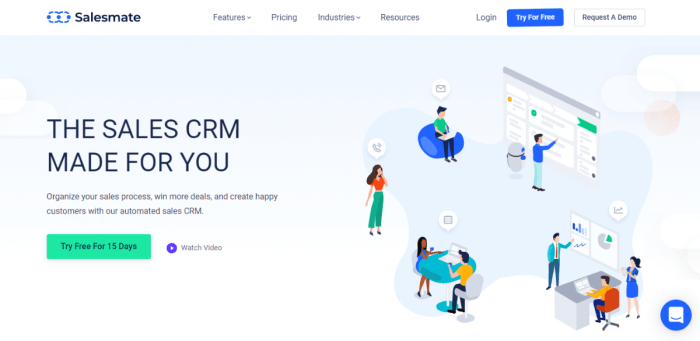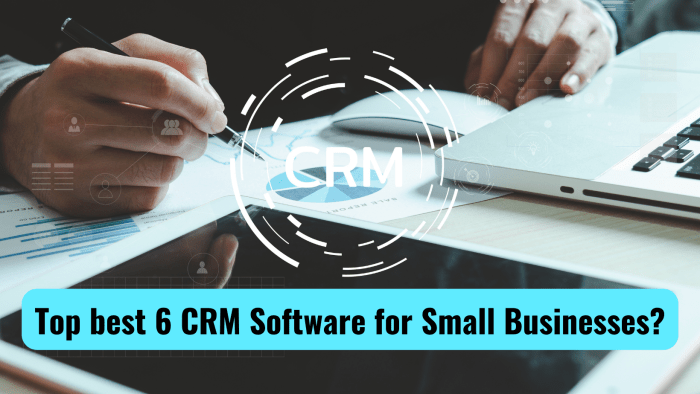Best crm and accounting software for small business – Running a small business requires juggling numerous tasks, from managing customer relationships to tracking finances. Efficient software can significantly streamline these processes, boosting productivity and profitability. Choosing the right Customer Relationship Management (CRM) and accounting software is crucial for success. This comprehensive guide explores the best options available, helping you select the perfect tools for your specific needs.
Understanding Your Needs: CRM and Accounting Software Selection
Before diving into specific software, it’s vital to assess your business’s unique requirements. Consider the following:
CRM Needs:
- Number of contacts: Do you have a small, manageable list, or a rapidly expanding database?
- Sales process complexity: Is your sales cycle simple or multi-stage, involving multiple touchpoints?
- Integration needs: Do you need your CRM to integrate with other software, such as your accounting system, email marketing platform, or e-commerce store?
- Reporting and analytics: What kind of insights do you need to track sales performance, customer behavior, and marketing campaign effectiveness? Do you need robust reporting features or simpler dashboards?
- Team size and collaboration: How many users will need access to the CRM, and what level of collaboration is required?
Accounting Needs:
- Business structure: Sole proprietorship, partnership, LLC, or corporation? Different structures have different accounting requirements.
- Industry-specific needs: Certain industries have unique accounting needs (e.g., inventory management for retail, project tracking for consulting).
- Transaction volume: How many transactions do you process daily, weekly, or monthly?
- Reporting requirements: What financial reports do you need to generate (e.g., profit and loss statements, balance sheets, cash flow statements)? Do you need advanced reporting capabilities?
- Tax compliance: Does the software assist with tax preparation and filing?
- Invoicing and payment processing: Do you need integrated invoicing and online payment processing capabilities?
Top CRM Software for Small Businesses
Several excellent CRM options cater specifically to small businesses. Here are a few popular choices:
HubSpot CRM:
HubSpot offers a robust, free CRM with a generous feature set, including contact management, deal tracking, email integration, and basic reporting. Its scalability allows for growth as your business expands. Its strength lies in its all-in-one marketing, sales, and service capabilities.
Zoho CRM:
Zoho CRM provides a comprehensive suite of tools at competitive prices. It boasts strong automation capabilities, customizable workflows, and integrations with various other Zoho applications. It’s a versatile choice for businesses of various sizes.

Source: solidperformers.com
Salesforce Sales Cloud (Essentials):, Best crm and accounting software for small business
While Salesforce is known for its enterprise-level solutions, its Essentials plan offers a simplified, affordable option for smaller businesses. It’s a powerful CRM with a wide range of features, but may have a steeper learning curve than other options.

Source: solutionsuggest.com
Freshsales:
Freshsales is another strong contender, known for its user-friendly interface and robust automation features. It offers a good balance between functionality and ease of use, making it a suitable option for teams of all sizes.
Top Accounting Software for Small Businesses
Choosing the right accounting software can significantly improve your financial management. Here are some leading options:
Xero:
Xero is a cloud-based accounting software popular for its user-friendly interface and robust features. It excels in invoicing, expense tracking, bank reconciliation, and reporting. It integrates well with various other business tools.
QuickBooks Online:
QuickBooks Online is another leading cloud-based solution, offering a range of plans to suit different business sizes and needs. It provides comprehensive accounting features, including inventory management, payroll processing, and tax preparation support. It’s known for its ease of use and extensive resources.
FreshBooks:
FreshBooks is particularly well-suited for freelancers and small businesses that prioritize invoicing and expense tracking. It offers a clean interface, making it easy to manage clients and payments. It also includes time tracking capabilities.
Zoho Books:
Zoho Books is part of the Zoho suite and integrates seamlessly with other Zoho applications. It’s a comprehensive accounting solution that offers features like invoicing, expense tracking, inventory management, and financial reporting.
CRM and Accounting Software Integration: A Powerful Combination
Integrating your CRM and accounting software can significantly enhance efficiency and data accuracy. A seamless integration allows for automatic data synchronization between the two systems, eliminating manual data entry and reducing the risk of errors. This integration streamlines workflows, providing a unified view of your business operations. Look for software with native integrations or use third-party integration tools to connect your chosen CRM and accounting platforms.

Source: wordpress.com
Choosing the Right Software for Your Business: Best Crm And Accounting Software For Small Business
The best CRM and accounting software for your small business depends on your specific needs and budget. Consider the factors discussed earlier, try out free trials or demos, and read user reviews before making a decision. Remember that the right software can significantly improve your productivity and profitability.
Frequently Asked Questions (FAQ)
- Q: What is the difference between CRM and accounting software?
A: CRM software manages customer relationships, sales processes, and marketing efforts. Accounting software manages financial transactions, generates financial reports, and assists with tax compliance. - Q: Can I use free CRM software for my business?
A: Yes, several free CRM options are available, but they may have limited features compared to paid versions. Free options are suitable for smaller businesses with basic needs. - Q: How much does accounting software typically cost?
A: The cost varies depending on the software and the plan you choose. Prices range from a few dollars per month to several hundred dollars per month for advanced features. - Q: Is cloud-based software better than desktop software?
A: Cloud-based software offers advantages like accessibility from anywhere, automatic updates, and enhanced collaboration. However, desktop software might be preferred if you have concerns about internet connectivity or data security. - Q: How do I choose the right integration between CRM and accounting software?
A: Look for software with native integrations or use a reputable third-party integration tool. Ensure the integration supports the data fields you need to transfer between systems.
Resources
Call to Action
Ready to streamline your business operations? Explore the CRM and accounting software options discussed above and choose the best fit for your needs. Start your free trial today and experience the benefits of efficient software management!
Expert Answers
What are the key features to look for in CRM software?
Essential features include contact management, lead tracking, sales pipeline visualization, reporting and analytics, and ideally, integration with other business tools.
How much should I expect to pay for CRM and accounting software?
Pricing varies widely depending on features, scalability, and vendor. Expect to find options ranging from free plans with limited functionality to enterprise-level solutions with substantial monthly or annual fees.
Can I integrate my CRM and accounting software?
Yes, many CRM and accounting software solutions offer integration capabilities, allowing for seamless data flow between the two systems. This eliminates manual data entry and improves accuracy.
What if my business grows? Can I scale my software?
Choose software that offers scalability. As your business grows, you should be able to upgrade your plan or add users without significant disruption.
What kind of technical support is typically available?
Most reputable vendors provide various support options, including online documentation, email support, phone support, and sometimes even live chat.
